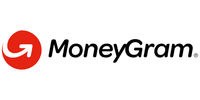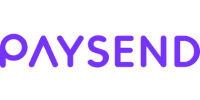Compare the best ways to send money to Jamaica
Get the best deals when you transfer money to Jamaica. Find the cheapest, fastest, and most reliable providers with the best JMD exchange rates.
Read on for the best JMD deals, expert information, and all you need to transfer money to Jamaica.
Send money to Jamaica
"Over 16 million customers use Wise, mostly for their excellent mobile app, transparent fee structure & use of mid-market rates. Now increasingly used for larger transfers."
"Over 16 million customers use Wise, mostly for their excellent mobile app, transparent fee structure & use of mid-market rates. Now increasingly used for larger transfers."
"Over 16 million customers use Wise, mostly for their excellent mobile app, transparent fee structure & use of mid-market rates. Now increasingly used for larger transfers."
"Xe has over 30 years of currency exchange experience, and is one of the most reputable names on the market. 200 countries, 100 currencies, & funds often received in seconds."
"Xe has over 30 years of currency exchange experience, and is one of the most reputable names on the market. 200 countries, 100 currencies, & funds often received in seconds."
"Xe has over 30 years of currency exchange experience, and is one of the most reputable names on the market. 200 countries, 100 currencies, & funds often received in seconds."
"Over 16 million customers use Wise, mostly for their excellent mobile app, transparent fee structure & use of mid-market rates. Now increasingly used for larger transfers."
"Over 16 million customers use Wise, mostly for their excellent mobile app, transparent fee structure & use of mid-market rates. Now increasingly used for larger transfers."
"Over 16 million customers use Wise, mostly for their excellent mobile app, transparent fee structure & use of mid-market rates. Now increasingly used for larger transfers."
"Revolut has 50+ million customers globally. You can hold up to 36 currencies in the app and send money quickly in 70+ currencies to 160+ countries."
"Revolut has 50+ million customers globally. You can hold up to 36 currencies in the app and send money quickly in 70+ currencies to 160+ countries."
"Revolut has 50+ million customers globally. You can hold up to 36 currencies in the app and send money quickly in 70+ currencies to 160+ countries."
"Xe has over 30 years of currency exchange experience, and is one of the most reputable names on the market. 200 countries, 100 currencies, & funds often received in seconds."
"Xe has over 30 years of currency exchange experience, and is one of the most reputable names on the market. 200 countries, 100 currencies, & funds often received in seconds."
"Xe has over 30 years of currency exchange experience, and is one of the most reputable names on the market. 200 countries, 100 currencies, & funds often received in seconds."
"Xoom, a PayPal service, allows you to send money in more than 160 countries. You can send cash for over-the-counter pickup or home delivery, as well as send by bank transfer or debit card."
"Xoom, a PayPal service, allows you to send money in more than 160 countries. You can send cash for over-the-counter pickup or home delivery, as well as send by bank transfer or debit card."
"Xoom, a PayPal service, allows you to send money in more than 160 countries. You can send cash for over-the-counter pickup or home delivery, as well as send by bank transfer or debit card."
"Sendwave is trusted by over 1 million users across the US, UK, Canada and EU. 24/7 support is available online and via the app."
"Sendwave is trusted by over 1 million users across the US, UK, Canada and EU. 24/7 support is available online and via the app."
"Sendwave is trusted by over 1 million users across the US, UK, Canada and EU. 24/7 support is available online and via the app."
"Paysend has transparent fees and rates, with transfer sent within seconds to your recipient's bank. They also have global 24/7 support for any enquiries, and bank-level security."
"Paysend has transparent fees and rates, with transfer sent within seconds to your recipient's bank. They also have global 24/7 support for any enquiries, and bank-level security."
"Paysend has transparent fees and rates, with transfer sent within seconds to your recipient's bank. They also have global 24/7 support for any enquiries, and bank-level security."
"Moneygram is a well established service with over 80 years in the sector. They support over 200 countries worldwide and have over 440,000 retail locations."
"Moneygram is a well established service with over 80 years in the sector. They support over 200 countries worldwide and have over 440,000 retail locations."
"Moneygram is a well established service with over 80 years in the sector. They support over 200 countries worldwide and have over 440,000 retail locations."
How to get the best rate when sending money to Jamaica
Always compare rates
Don't pay more than you have to. Use our live comparison tool to make sure you aren't missing the best JMD rates.
Choose a provider
Select the provider that offers you the most JMD and fits your needs.
Click, sign up & transfer
Follow the steps & make your transfer. Your JMD will soon be on the way.
Wise: The best way to send money to Jamaica
We’ve tested 7 companies offering services in Jamaica, and Wise stood out as the best money transfer company to Jamaica.
They offer low fees of just $69.56 and 0.5% markup on JMD exchange rates, and fast transfer speeds.
Wise offers an ideal combination of features, speed, and cost for JMD transfers.
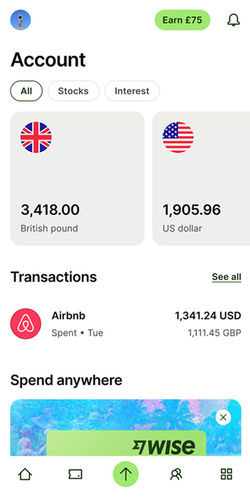
MoneyGram: The cheapest way to send money to Jamaica
MoneyGram charges $490.00000000000006 per transfer to Jamaica, with a 2% markup on the JMD exchange rate. This is -9.17% cheaper than the second cheapest option.
To get the most out of your transfer to Jamaica, use a bank transfer deposit to maximize the amount of JMD received.
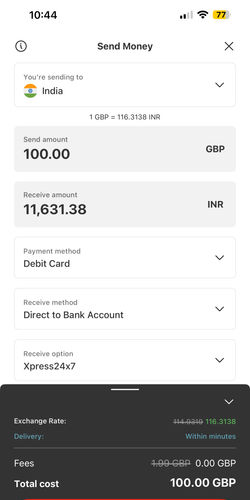
MoneyGram is the fastest way to send money to Jamaica
With MoneyGram, the transfer time to Jamaica is minutes - 24 hours.
charges $490 and adds a markup of 2% on top of the JMD exchange rate. This is 0% cheaper than the next best option as of February 2026.
For the best combination of speed and cost, we recommend using a to fund your transfer to Jamaica.
*This is based on a $7,000 transfer to Jamaica.

Wise is the easiest way to send money to Jamaica
Wise is very transparent with its fees, charging $69.56 and 0.5% markup on JMD transfers.
They offer multiple deposit options, have good customer service, and take less than 5 minutes to get started with.

Consider this before sending money to Jamaica
Don't settle for the first option. Always compare ways to send money to Jamaica to find out about fees, speed, and reliability.
Our analysis included 7 providers that operate in Jamaica.
Through this, you get a comprehensive view of all the options you have when sending money to Jamaica.
Sending large amounts of JMD to Jamaica
Revolut consistently ranked as the top choice for large JMD transfers. They charge $21 per transfer to Jamaica and apply only a 0.2% markup on the JMD exchange rate.
Whether you’re purchasing property, paying tuition fees in JMD, planning a wedding in Jamaica, or making business payments, Revolut ensures a smooth and secure process.
When sending large amounts of Jamaican Dollar to Jamaica, consider factors like transfer limits, markup on the JMD rate, customer service, and any legal, tax, or government-imposed restrictions in Jamaica.
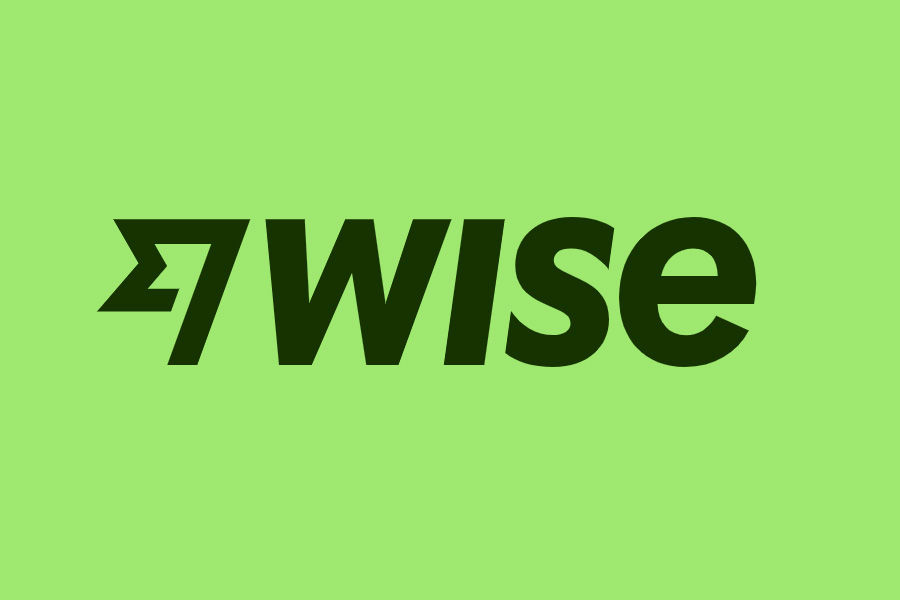
The costs of sending money to Jamaica
The cost of JMD transfers depends on where your location, amount, funding and withdrawal methods, transfer fees, and the markup added on top of the JMD exchange rate.
Exchange rate markup
The exchange rate markup is the percentage added to the mid-market rate (the "real" JMD rate) by the service provider.
For example, Revolut offers one of the best exchange rates by applying a 0.2% markup on the USD-JMD exchange rate.
This means you receive 156.2692 JMD - 0.2% for every US Dollar sent.
Transfer fees
Transfer fees to Jamaica can be either fixed, percentage-based, or a combination of both.
Suppose you want to send $7,000 to Jamaica (JMD).
After analyzing 7 services supporting JMD, Paysend appears to have the lowest fee of $490.00000000000006 per transfer to Jamaica.
Deposit method
The way you fund your JMD transfers can significantly affect the cost.
bank transfer is the overall cheapest deposit method for sending money to Jamaica.

Get the best JMD exchange rate
The exchange rate is the value of the JMD (Jamaican Dollar) against other currencies, and since it fluctuates, it will affect how much JMD the recipient will get. Sending money when JMD reaches the highest value will result in more JMD for your recipient.
Over the past 7 days, the JMD exchange rate has:
Averaged at 156.2692 Jamaican Dollar per USD
Reached a high of 156.8126 JMD/USD
Dropped to a low of 155.9298 JMD per US Dollar
You should aim to make a transfer when the rate is closer to 156.8126 JMD/USD . This will give your recipient in Jamaica more Jamaican Dollar.
Pair your transfer with Revolut (who offers the best exchange rate), and you will maximize the amount of JMD received.
Get notified when it’s the best time to send JMD
Sign up for our rate alerts, and we’ll notify you when it’s the best time to send JMD!
Payment methods available to fund your transfer to Jamaica
Bank transfers
Bank transfers are often the default option for sending money to Jamaica.
By using a money transfer company available in Jamaica such as MoneyGram, you can send money via a bank transfer (or ACH) while benefiting from lower fees and more favorable exchange rates.
MoneyGram is the cheapest provider for bank transfers from the 7 we tested when sending money to Jamaica.
They charge 490.00000000000006JMD for sending money to Jamaica with a bank transfer, resulting in 998,099.61 for your recipient.

Debit and prepaid cards
Sending money to Jamaica with a debit or a prepaid card is very simple with Xe.
Xe is a leader in debit card payments to Jamaica, competing among a total of 7 active money transfer companies.

Credit cards
When it comes to sending JMD via credit card, we to get the best deal today.
Fee alert: using a credit card to transfer money often results in a cash advance fee being charged by your card issuer. That's why we recommend a bank transfer or debit card instead.

How we analyze the market
We track the cost, speed, and product offerings of the leading money transfer services available in Jamaica.
Our comparison engine and algorithms evaluate providers based on over 25 factors, including transfer fees, ease of use, exchange rates, mobile apps, transfer times & customer support.
We also consider how these services are rated on platforms like TrustPilot, AppStore, and Google Play, giving you a comprehensive view of what to expect.
This thorough analysis helps you get the best available deal - every time you want to move money to Jamaica.
We also provide unbiased and detailed reviews of all the top money transfer companies. You can use these reviews to find the best service for your needs when sending money to Jamaica
For a deeper understanding of our commitment to integrity and transparency, we invite you to read our editorial policy and review methodology.

Related transfer routes
Send money from Jamaica
Send money to Jamaica
FAQs
Find answers to the most common questions on our dedicated FAQ page.
How much money can be transferred to Jamaica?
Are there any tax implications to sending money to Jamaica?
What are the typical transfer fees for sending money to Jamaica?
How long does it take to send money to Jamaica?
Are there any minimum or maximum transfer limits for transfers to Jamaica?
Can I schedule regular transfers to Jamaica?
What currency is used in Jamaica?
Can I send money to Jamaica from any country?
How can I track my money transfer to Jamaica?
What should I do if my money transfer to Jamaica goes wrong?
Can’t I use my bank to send money to Jamaica?
Why do people send money to Jamaica?
Can I send money to Jamaica with MoneyTransfers.com?
Useful links for Jamaicans abroad
Contributors









